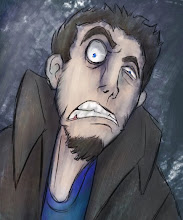I think this is the "Table Ronde" Max Forte spoke of during last class. I just received the invitation, here it is for those interesed by the subject:
Altérités presentsANTHROPOLOGISTS IN MINED FIELDSRoundtable organized by Yara El-Ghadban and Kiven StrohmFriday February 6, 2009 from 12h30 to 3h30 pmSalle Marius Barbeau (C-3061), Département d’Anthropologie,Université de MontréalModerator: Yara El-Ghadban, doctorante en anthropologie, Université de MontréalINVITED SPEAKERSMarie-Joëlle ZaharProfesseure agrégée, Science politique, Université de MontréalOmar DewachiPost-doctorant en anthropologie, Université de MontréalAbdel-Hamid AfanaPresident of the International Rehabilitation Council for Torture Victims (IRCT)Research Associate, Trauma and Global Health Program, Douglas Hospital Research Institute, McGill UniversityKiven Strohm, doctorant en anthropologie, Université de MontréalMaximilian ForteAssociate Professor, Sociology and Anthropology, Concordia UniversityDISCUSSANTSMariella PandolfiProfesseure titulaire, Anthropologie, Université de MontréalNadia ProulxDoctorante en anthropologie, Université de MontréalA buffet will be offered during the eventFREE ENTRY(please see poster below)SUMMARYL’intellectuel est peut-être une sorte de contre-mémoire possédant son propre contre-discours qui défend à la conscience de porter son regard ailleurs ou de s’endormir– Edward Said 2005Qu’est-ce que l’intellectuel, sinon celui qui travaille à ce que les autres n’aient pas tellement bonne conscience?– Michel Foucault 1976In many of Saïd and Foucault’s writings, the intellectual is called upon to keep a critical perspective by staying deliberately out-of-step with current events, in essence by offering a constant counterpoint to the immediacy of the present and its short-sightedness in order to think beyond the surface of things. However, those who undertake research in areas of conflict are often confronted with situations that expose the limits of such a position. In the middle of a conflict zone, the ethnographic text and critical reflection come face to face with the dictatorship of the present, the brutality of finitude, the fragility of human life and the imperative to respond to what seems inhumane, if only to survive.In such a context, is critical thinking even possible? Being a form of sustained but non-reactive engagement that often occurs at a distance in time and space from the conflict zone, is critical thinking compatible with the acts of engagement that take place in areas of conflict? These are but some of the questions that we wish to discuss in the context of this roundtable, which brings together a range of researchers working in areas of conflict. The discussion will focus on the role of intellectuals in conflict zones with speakers invited to talk about their experiences and their reflections on the risks, challenges and different forms of commitment that working in such conditions inevitably implies. Finally, they are invited to share with the audience the dilemmas and second-thoughts (if there are any) that have shaped their experiences.Issues covered in this event include :- How is academic research practiced in areas of conflict?- What are the risks and challenges of such a practice?- What to do, as researchers, in the face of experiences that are unspeakable?- Where do critical thinking and acts of engagement meet and at what point do they come apart?- What are the traces left by the researchers when they leave these places?





No comments:
Post a Comment